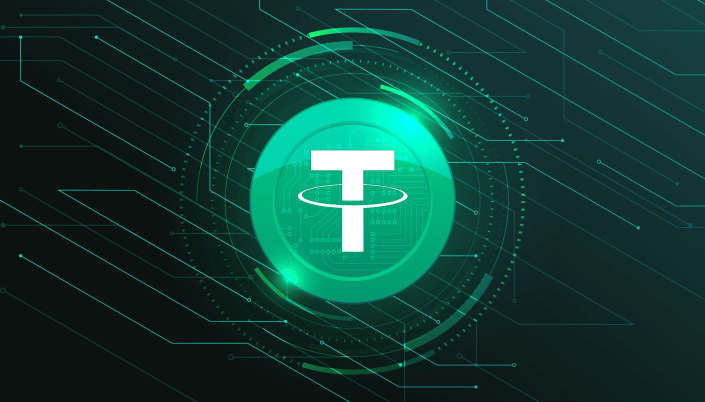
The cryptocurrency industry is no stranger to regulatory challenges, having weathered numerous legal and compliance hurdles over the years. Tether’s journey, in particular, has been marked by regulatory scrutiny and skepticism, as authorities scrutinize its operations and demand greater transparency. Against this backdrop, Tether’s response to regulatory pressure serves as a litmus test of its resilience and commitment to compliance.
Addressing Regulatory Concerns: Tether’s Compliance Efforts
Tether, as the largest stablecoin issuer by market share, faces intense scrutiny from regulators seeking to ensure the stability and integrity of the cryptocurrency market. In response, Tether has undertaken significant compliance efforts, collaborating with law enforcement agencies across 40+ countries and blocking over $1.3 billion worth of assets linked to scams, hacks, and money laundering. These proactive measures underscore Tether’s commitment to regulatory compliance and investor protection.
Ripple’s Gambit: A Bid for Market Dominance
Meanwhile, Ripple’s foray into the stablecoin market represents a strategic gambit aimed at diversifying its product offerings and challenging Tether’s dominance. With its vast network and technological prowess, Ripple poses a formidable threat to incumbents in the stablecoin space. However, its ongoing legal battle with the SEC casts a shadow of uncertainty over its stablecoin ambitions, raising questions about regulatory approval and market acceptance.
Building Trust Through Transparency and Accountability
At the heart of the stablecoin debate lies the issue of trust, as investors demand greater transparency and accountability from stablecoin issuers. Tether’s efforts to bolster its compliance measures and collaborate with law enforcement agencies signal a commitment to addressing these concerns and fostering trust in its stablecoin. Similarly, Ripple must demonstrate its commitment to regulatory compliance and financial transparency to assuage investor concerns and gain regulatory approval for its stablecoin endeavors.
Navigating Uncertain Waters: A Call for Industry Collaboration
As the cryptocurrency industry navigates uncertain regulatory waters, stakeholders must collaborate to chart a course toward greater regulatory clarity and market stability. Regulatory agencies, industry participants, and advocacy groups must work together to establish clear guidelines and standards that promote investor protection and market integrity. By fostering dialogue and cooperation, stakeholders can address regulatory concerns and create an environment conducive to innovation and growth in the cryptocurrency ecosystem.
Looking Ahead: The Path Forward for Stablecoins
Looking ahead, the path forward for stablecoins will be shaped by ongoing regulatory developments, technological advancements, and market dynamics. Stablecoin issuers must remain vigilant in addressing regulatory concerns and adapting to evolving market conditions. By prioritizing transparency, compliance, and investor protection, stablecoin issuers can build trust and confidence in their platforms, driving greater adoption and acceptance of stablecoins in the global economy. As the cryptocurrency industry continues to mature, stablecoins are poised to play a pivotal role in facilitating digital transactions, enabling financial inclusion, and driving innovation in the digital asset space.
Expanding Tether’s Compliance Measures
Tether’s collaboration with law enforcement agencies and its proactive stance on compliance reflect a growing recognition of the importance of regulatory adherence in the cryptocurrency space. By expanding its compliance measures and enhancing transparency, Tether can mitigate regulatory risks and bolster investor confidence in its stablecoin. Moreover, Tether’s efforts to combat illicit activities and money laundering underscore its commitment to fostering a safe and secure cryptocurrency ecosystem.
Ripple’s Regulatory Challenges and Opportunities
Ripple’s legal battle with the SEC presents both challenges and opportunities for the company’s stablecoin ambitions. While regulatory uncertainty poses a significant obstacle to Ripple’s entry into the stablecoin market, it also highlights the need for greater regulatory clarity and transparency. By engaging constructively with regulators and addressing compliance concerns, Ripple can position itself as a trusted player in the stablecoin space and gain a competitive edge in the market.
Conclusion: Charting a Course for Stability and Growth
In conclusion, the Tether-Ripple debate underscores the challenges and opportunities facing the stablecoin market in an era of heightened regulatory scrutiny. While regulatory challenges pose significant hurdles for stablecoin issuers, they also present an opportunity to strengthen compliance measures and enhance investor trust. By navigating regulatory challenges with resilience and transparency, stablecoin issuers can pave the way for stability and growth in the cryptocurrency ecosystem. Moreover, industry collaboration and proactive engagement with regulators are essential to fostering trust, promoting innovation, and ensuring the long-term viability of stablecoins as a critical component of the digital economy.












